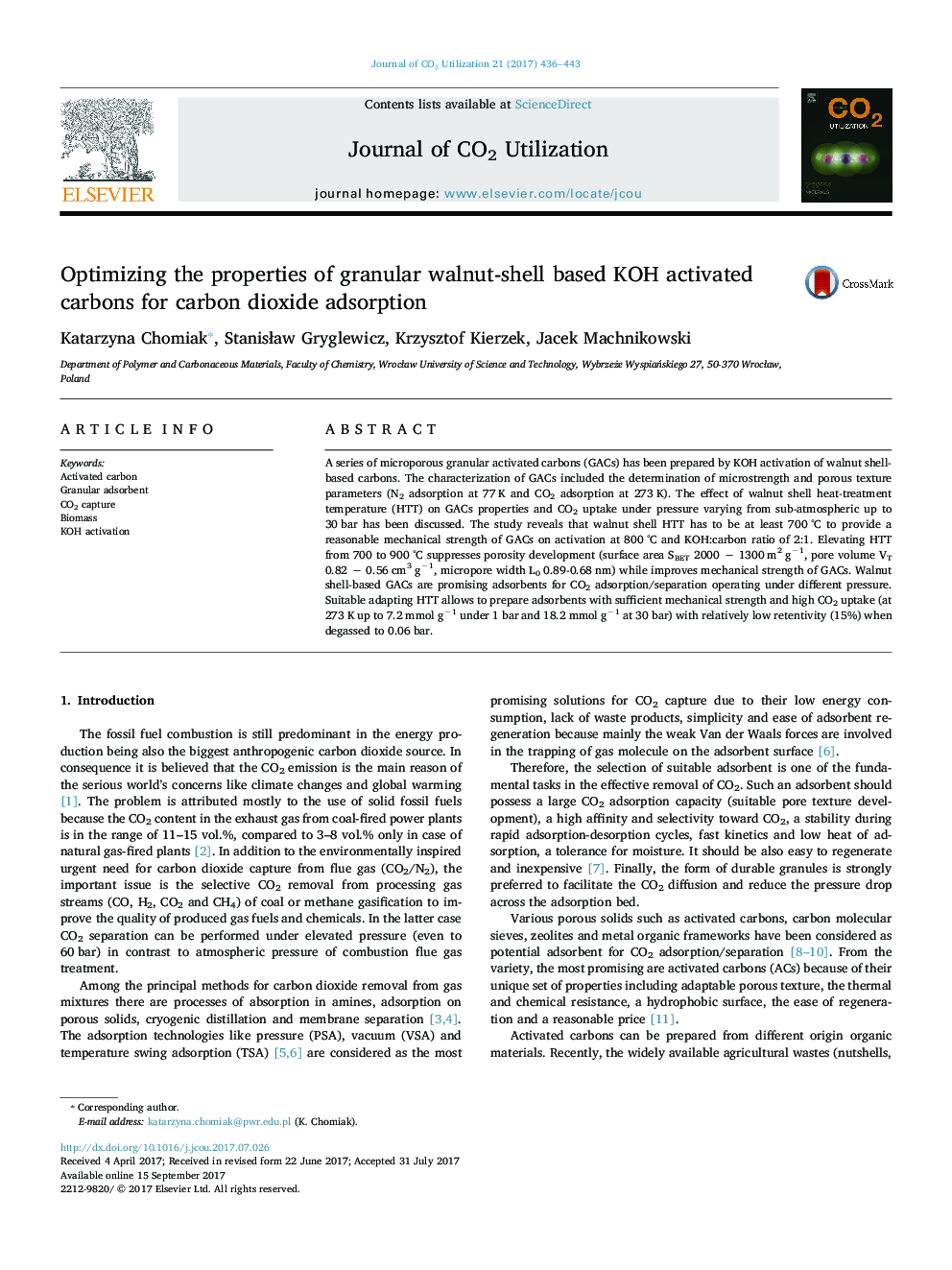| Article ID | Journal | Published Year | Pages | File Type |
|---|---|---|---|---|
| 6456120 | Journal of CO2 Utilization | 2017 | 8 Pages |
â¢Granular ACs were successfully prepared using KOH activation of walnut shells.â¢Elevating HTT suppresses porosity while improves mechanical strength of materials.â¢Resultant ACs are promising adsorbents for CO2 adsorption/separation.â¢Micropores in size below 0.8 nm are the most effective in CO2 adsorption (1 bar,273 K).
A series of microporous granular activated carbons (GACs) has been prepared by KOH activation of walnut shell-based carbons. The characterization of GACs included the determination of microstrength and porous texture parameters (N2 adsorption at 77 K and CO2 adsorption at 273 K). The effect of walnut shell heat-treatment temperature (HTT) on GACs properties and CO2 uptake under pressure varying from sub-atmospheric up to 30 bar has been discussed. The study reveals that walnut shell HTT has to be at least 700 °C to provide a reasonable mechanical strength of GACs on activation at 800 °C and KOH:carbon ratio of 2:1. Elevating HTT from 700 to 900 °C suppresses porosity development (surface area SBET 2000 â 1300 m2 gâ1, pore volume VT 0.82 â 0.56 cm3 gâ1, micropore width L0 0.89-0.68 nm) while improves mechanical strength of GACs. Walnut shell-based GACs are promising adsorbents for CO2 adsorption/separation operating under different pressure. Suitable adapting HTT allows to prepare adsorbents with sufficient mechanical strength and high CO2 uptake (at 273 K up to 7.2 mmol gâ1 under 1 bar and 18.2 mmol gâ1 at 30 bar) with relatively low retentivity (15%) when degassed to 0.06 bar.
